Business & Management
CoBAMS First Class graduands share their stories
Published
2 years agoon
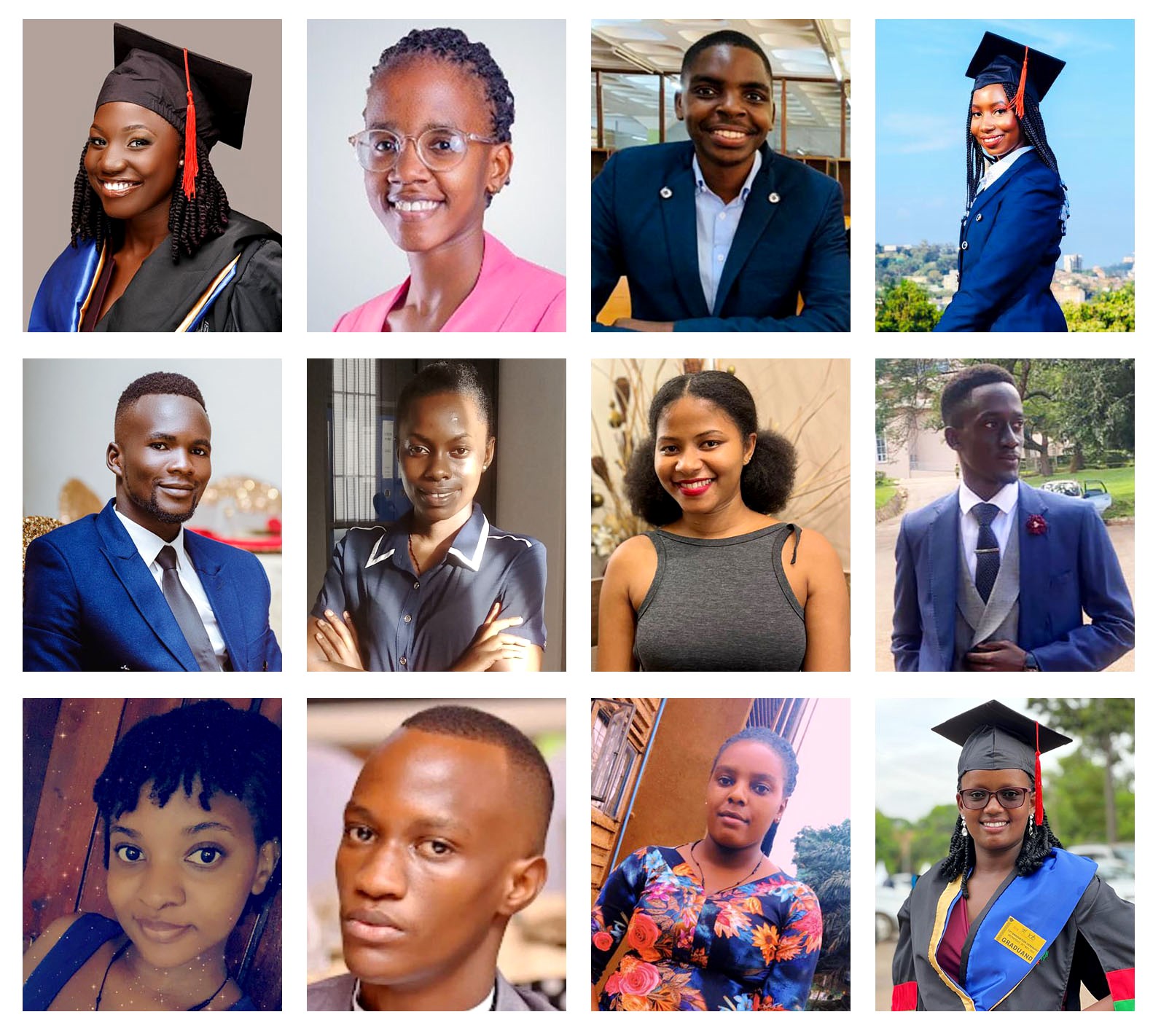
Mirembe Joy Ssenfuma
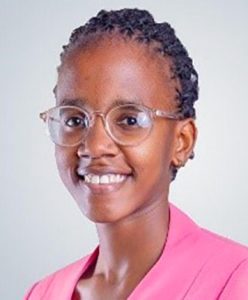
My name is Mirembe Joy Ssenfuma, I have pursed a Bachelor of Science in Quantitative Economics from Makerere University and today I graduate with a First-class Honors degree.
This journey has not been as easy as it may seem; strong winds blew, thunders and lightening came along the way, but the Almighty did not forsake me. I thank my mum for her continuous financial and emotional support, my siblings, and friends for the support during this academic journey. I was able to achieve this through group discussions, full attendance of lectures (I attended almost 99% of physical lectures) and lastly, I prayed every day for God to gift me with knowledge and wisdom through my journey. I thank the Lord for this success!
Taaka Proscovia
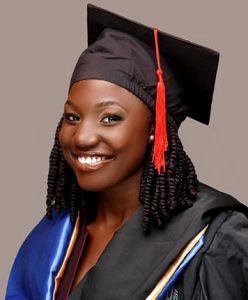
I started my campus journey in 2018 when by I joined Makerere University on government sponsorship with 18 points. I was admitted to study a Bachelors of Arts in Economics degree. I had always wished to join Makerere University amongst all the Ugandan high institutions of learning and when I was offered this scholarship it was a dream come true.
It was a blessing being given economics as a course because I had always had passion for it.
My campus journey hasn’t been an easy one, there have been up-hills and downhills but with the right attitude, good friends, my parents, my lecturers and God above all, I have come to the end of the journey graduating with first class honors. It is exciting, glorifying and honouring to graduate with a first class surely I should say because this experience is something I will never forget. To anyone out there who looks forward to excelling he or she needs to focus, have the right attitude and put in his/her best because those were my major attributes towards this achievement
Habaasa Darius
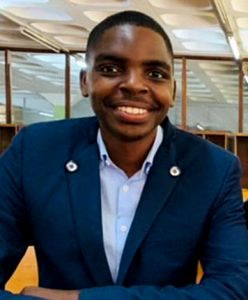
My name is HABAASA DARIUS and I have been pursuing a Bachelors of Arts in Economics degree from Makerere University where I am graduating with a first class degree with a CGPA of 4.70.
The reason I am graduating is because there are some people who held my hand at a point when my academic career seemed to have been aborted. My father refused to pay my school fees when I was in senior four and all hopes of ever completing my studies seemed to have been dashed.
A big appreciation goes to Mr Byamukama Remegio, the head teacher of St Mary’s College Rushoroza whom I shared my challenges with and he stood with me by allowing me to sit for UNEB before paying school fees since I could not afford it.
Thanks be to God who enabled me to get a scholarship from Cornerstone Leadership Academy which catered for my needs and school fees while in A’level where I even excelled at senior six with 19 points hence getting a government sponsorship.
It is on the basis of the above background that I always worked hard since I knew that academic excellence was one of the ways God would use to help me. I also did not want to disappoint those who were held my hand and invested their resources in me.
Makerere University was my dream campus and joining it was a dream come true for me which really motivated me further to work hard and realise my dreams. Campus life was not a walk over but I dedicated my life to reading my books and also serving God since I was even leading COBAMS fellowship in a bid not to ever disappoint God who made a way for me when there was no way.
Special thanks to my mother who never gave up on standing by my side despite not having money most of the times to support me financially and not forgetting Cornerstone Development Africa who sponsored my A’level and my lecturers at campus who constantly helped and advised me.
Paul Isingoma
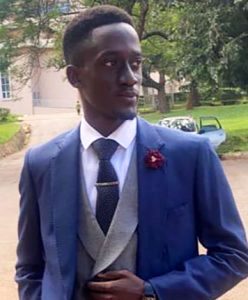
Paul Isingoma is an ambitious, warm-hearted go-getter. His devotion towards success and excellence inform his mindful but competitive approach. Paul is fueled by his passion for being a professional economist and auditor with outstanding advisory expertise for both financial institutions and world economies. He considers himself a ‘forever student,’ eager to both build on his academic foundations in Economics and stay in tune with the latest developments in the Global Economy through continued studying.
During his stay at Makerere University, Paul achieved a first class degrees for all the six semesters throughout the three years at campus. The toughest time of study was during the onset of the Covid-19 pandemic where there was limited interaction between lecturers and course-mates. Despite this, Paul devised newer means of staying in touch with his colleagues through online platforms and there was a strong determination towards being the best. The most interesting event at university was the election week for selection of new leaders. The spirit around campus was amazing and students used all kinds of strong vocabulary to win over the love of supporters.
Paul is forever indebted to the staff of School of Statistics and Planning for their unending effort and assistance towards his academic success. Ultimately, the achievement of such a great milestone has been possible due to the grace of God and Paul strongly remains grateful to the Almighty Lord for his undying love.
Karuhanga Kennedy
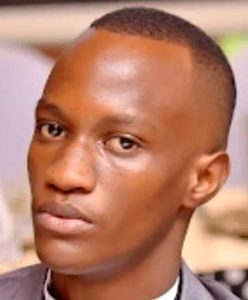
Bachelor of Science in Quantitative Economics
It’s true what they say that Makerere is the paragon of academic excellence in Uganda and to say that it never disappointed me would be an understatement. Here, one is in the hotpot of the “crème-de la -crème”. Nothing fails these students. I have found a distinct degree of ingenuity, hard work, determination and a combination of those plus all the others that I have not mentioned in this one place.
I believe that determination, commitment and a high degree of devotion should be the watchwords of anyone interested in making it at the prestigious hill. With the right mix of these, the right strategies are made as there’s no such thing as the “silver bullet” strategy to achieve one’s goal. Here, one’s flexibility plus grit matter a lot as these will enable one to even pass a course where they had a below average coursework mark.
Karuhanga wants to become a voice of authority within the economics and the finance fields. One could say the-go-to guy. This has and will push him to check every required box to achieve that. However, without piety, one cannot go far.
Helena Ahaisibwe Kaguma
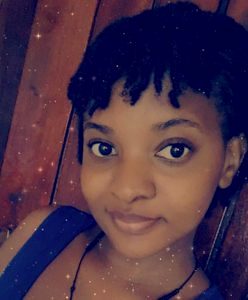
Course: Bachelor of Arts in Economics
Journey at Makerere University
As the last born child of a widow who lost her husband a few months before I got enrolled into university, the journey was already predestined to be a trifle tumultuous as I pursued my education at Makerere University. However, by the grace of God, my hardworking mother and elder siblings, I didn’t lack. Like all other aspects of life, nothing has come on a silver platter. This entire journey entailed many sleepless nights, walking in the rain from home (I was a commuting student) for some papers and many other hardships a student faces, especially as a female student. However, I am very proud to say that all the hardships paid off and have shaped me into a better, stronger and more resilient individual. I officially joined Makerere University on Thursday, 9th August, 2018.
Inspiration to work hard
My mother has always been the inspiration behind my hard work. She has been a great mentor and role model, always pushing me to be the best version of myself.
How I was able to get a first class
In all honesty, all the credit for all my success belongs to God. However, with regards to my own efforts as a student to succeed in my academics, I attribute this milestone to prayer, discipline, determination and lastly proper time management.
My motivation
I have always been driven by my passion to be exceptional in all I do in order to be in the best position to make a positive impact on the lives of those less fortunate than me and to also make this world a better place for those who come after me.
Okwaimungu Jasper Ngira
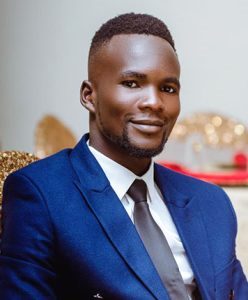
I am an Alur from Pakwach District and now a first class graduate of a Bachelor’s Degree of Arts in Development Economics. I am passionate about things to do with the economy and livelihood improvement. Sports and networking are my hobbies.
I draw my motivation from within. I have had a clear path of where I want to be in the medium and long term and how I am going to get there. From day one I knew I had to read hard to achieve my dreams.
My family background has also been a push factor. I have only been able to attain this degree because of government sponsorship and also some private help. This made me focus all my energy on studies such that I can one day uplift our status financially.
Another big motivation has been the expectations that I carry on my shoulders from my family, lecturers, sponsor and friends. They have believed in me since day one and I knew I had to read hard to make them proud. I have very many people to thank for their help along my journey to academic success. First and foremost, most my paternal Aunt Mrs. Angonifua Jolly and her husband Mr. Onoba Charles who have parented me since I was I was a child. Mr . Bitature Patrick has been a pillar in my life and I can’t thank him enough. My lecturers spotted my brilliance and helped nurture it the more especially Prof. Bbaale Edward, Dr. Suzan Kavuma and Mr Fred Kasalirwe. My discussion group mates helped me a lot too, I want to thank them and also congratulate them for graduating. I would also like to study a Masters degree in Economic Policy and Planning if I can get a scholarship or sponsorship.
Amasha Patricia Sheilla
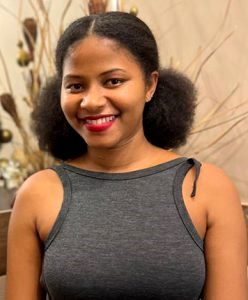
I am Amasha Patricia Sheilla, I pursued a Bachelor’s degree in Statistics at Makerere University.
I have always loved numbers and so that inspired me to take on a statistical course.
Staying focused, having and interacting with the right people has enabled me to get a first class degree (Cumulative Grade Point Average – CGPA = 4.41)
Nalweera Alice
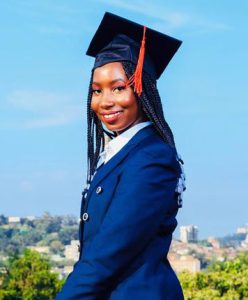
I am Nalweera Alice, a proud Muruli from Nakasongola District. I have a great passion for economics that is why I was inspired to undertake the course and it always gave me a push to focus and look forwards to a great performance.
My greatest inspiration has and will always be my father. He loves excellence in all aspects.
Going through Makerere University has been such a great experience for I adventured academically and socially.
Kapaska Evalyne
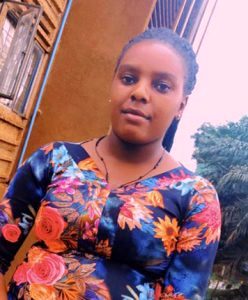
Today I graduate with a first class degree of Arts in Economics of Makerere University. I come from a small village in Ibanda District-western Uganda called Kyentaama. From there, I entered the gates of Makerere in August 2018 having attained 18 points from Citizen’s secondary school-Ibanda, which enabled me to get a merit government scholarship.
We stand today on the principle of the future, it is not a distant reality anymore, it begins here, it begins today. I entered Makerere as a child, but I am now leaving as an adult. Well, we did it, we all accomplished one of the major early milestones of our lives, university graduation. This is a major step in the journey of our lives, one that should be recognized for its immense significance. It is an act not only of personal commitment but also one of pride. We all worked hard to get to this day, and our work did not go to waste. Graduation is not an end goal in itself, it is instead a part of longer journey of life. I am glad and I thank God that He enabled me to get a first class degree.
When I was in my O’level, I was motivated by my elder sister and brother who were at Makerere university pursuing Bachelor of Arts in Economics and Bachelor of Arts in Education respectively. I loved studies and I worked and read very hard to also get to university, more importantly Makerere University. When I did my A’level, I worked very hard to be admitted on government which please my father. I promised him that I would get a first class degree, unfortunately, he died last year July and he has not been able to witness this day. (MHSRIP)
While at Makerere university, I chose good friends who could encourage me and advise me to attend all lectures from year one, and also consult on relevant course units for next semester even before it started. With the help of my OGs, OBs and the friends whom I made, we formed a discussion group where we could help each other in all course units. Truly, discussion groups, consultation with lecturers and students who were ahead of me for example Coleb Arinda last year first class graduand from Arts in Development Economics, and extensive reading were great factors that contributed to the success we are celebrating today.
While in my 3rd year first semester, my beloved dad passed away, I lost courage and thought that I was going to lose my first class but I kept praying to God to give me courage. My father always encouraged me to read hard so that I could get a first class. When I received my results of third year first semester, I had GPA of 4.16 which wasn’t a first class. I never gave up, continued reading and praying, God heard my prayers in the second semester and am graduating with a CGPA of 4.53.
I pray and hope that this gives me a brighter future that will help me achieve my career and life dreams.
For God and my country.
We build for the future.
Lillian Ahumuza
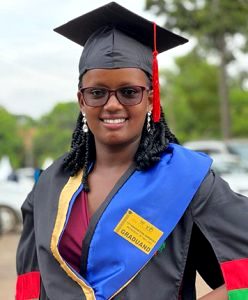
I am Ahumuza Lillian. I did Bachelor of Statistics and got a first class degree. What kept me moving in School was the idea that i always wanted to challenge myself to do better. I didnt get the 20 points i desired at A level and i promised myself to do better at University. My lecturer Dr. Dennis Wokiyi constantly encouraged me to work hard and he believed in me. I read very hard and my discussion group was always there for me. We shared ideas and researched on many topics. This first class is a result of hardwork, perseverance and consistency
You may like
-
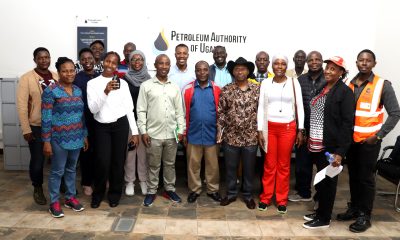

Mak Environmental Economists Explore Uganda’s Albertine Oil Fields: Identifying Research and Collaboration Opportunities
-
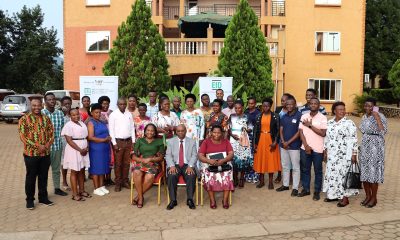

EfD Hosts Policy Dialogue on Energy Efficiency and Reduced Emissions: Hoima Residents Call for Expanded Access to Clean Energy
-
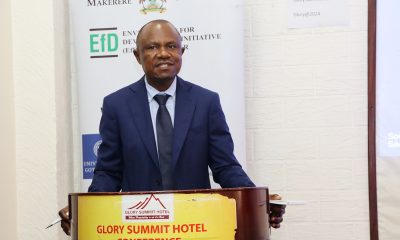

EfD-Uganda Holds Inaugural AGM: Celebrates Milestones and Outlines Future Plans
-
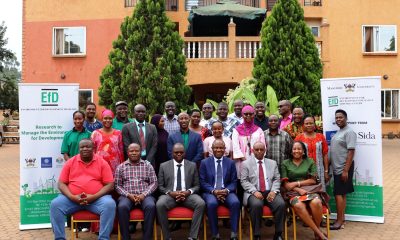

EfD Uganda AGM Endorses Professors Edward Bbaale and Johnny Mugisha for Directorship
-
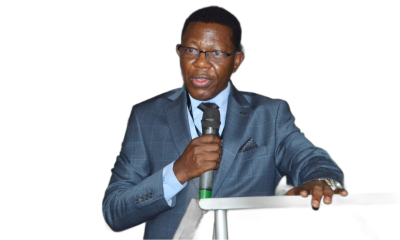

Prof. Buyinza Mukadasi Appointed Acting DVC Academic Affairs
-
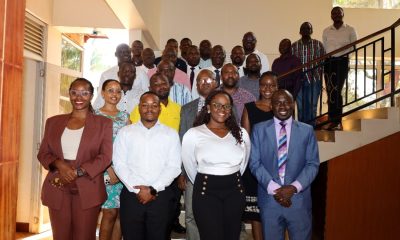

Public Investment Management Centre of Excellence awards certificates to 30 Officials
Business & Management
Building Resilience: Makerere Leads Climate Finance Training for Finance Officials
Published
3 days agoon
July 23, 2024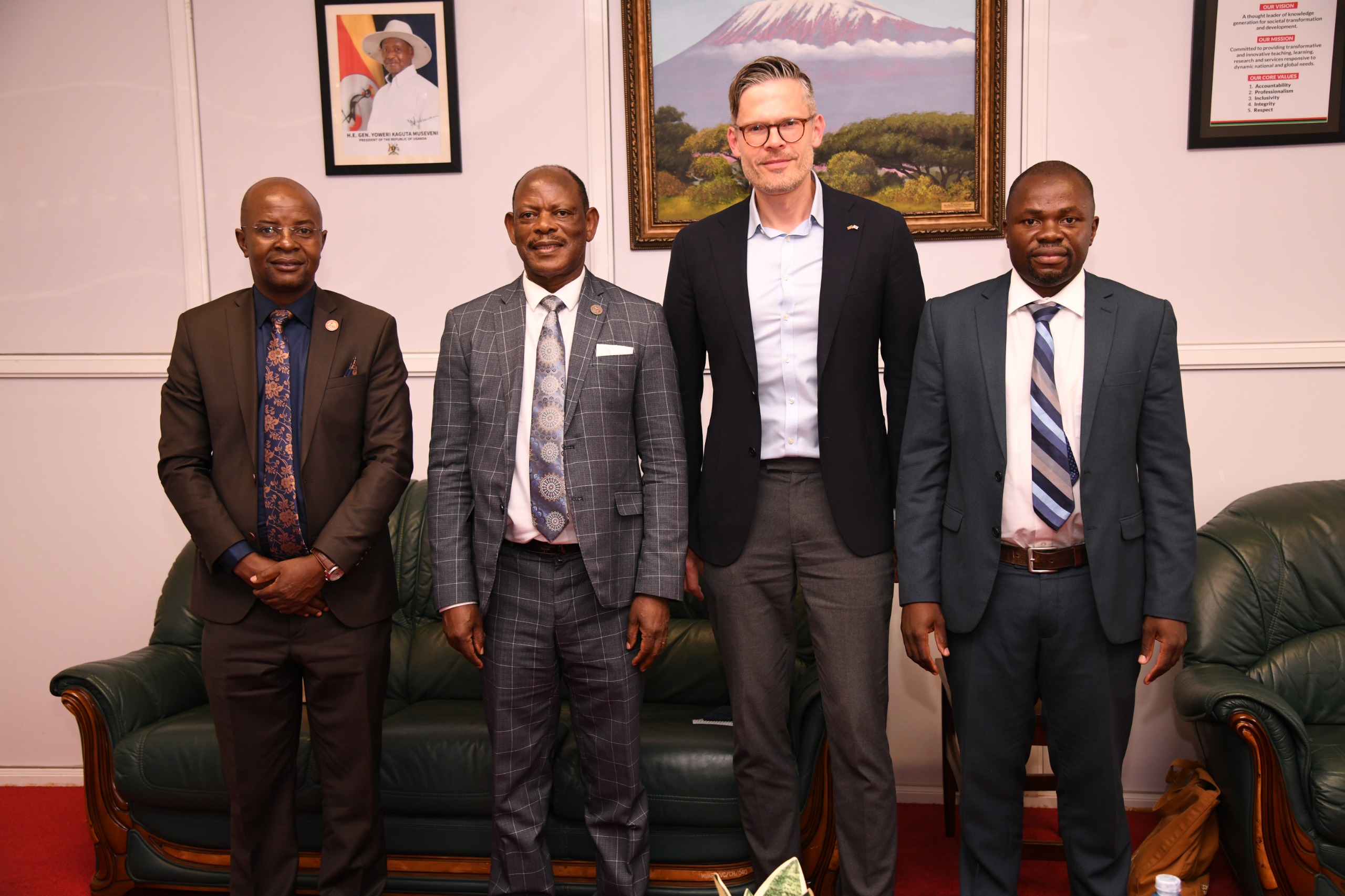
In a significant step towards enhancing Uganda’s resilience against the economic impacts of climate change, Makerere University has partnered with the Centre for Sustainable Finance at SOAS University of London and the World Resources Institute (WRI) to launch the Resilience and Adaptation Mainstreaming Program (RAMP). This initiative aims to equip officials from Uganda’s Ministry of Finance, Planning, and Economic Development (MoFPED) with the knowledge and tools needed to navigate the complex landscape of climate finance.
RAMP is part of a broader international effort to strengthen the capacity of governments, particularly in vulnerable and low- to middle-income countries, to manage the economic risks posed by climate change. Led by the WRI and supported by a network of 20 universities from Africa, Asia, and the West Indies, RAMP focuses on integrating climate adaptation strategies into the core operations of ministries of finance. This integration ensures that economic development priorities are aligned with climate adaptation needs, thereby enhancing access to adaptation finance.
Inaugural Training in Entebbe
The first training session under RAMP held in Entebbe started on July 23, bringing together policymakers and financial experts. Dr. Ulrich Volz from SOAS University of London highlighted the program’s emphasis on promoting high-quality teaching and research on climate adaptation economics and finance. “Working with local universities allows us to scale up the program effectively,” he noted. The network’s diverse range of institutions, including the University of the West Indies, University of Dar es Salaam, and University of Nairobi, underscores its global reach and commitment to building local capacity.
Prof. Edward Bbaale, Principal of the College of Business and Management Sciences at Makerere University, officially opened the 5-day training session. He urged participants to leverage this opportunity to develop their skills in sustainable finance and incorporate these practices into daily decision-making processes. Prof. Bbaale praised SOAS University of London and WRI for their partnership and the extensive training provided to the faculty in Ghana and Nairobi. He highlighted the critical role of education in equipping individuals with the knowledge and tools needed to address climate-related challenges in the financial sector.
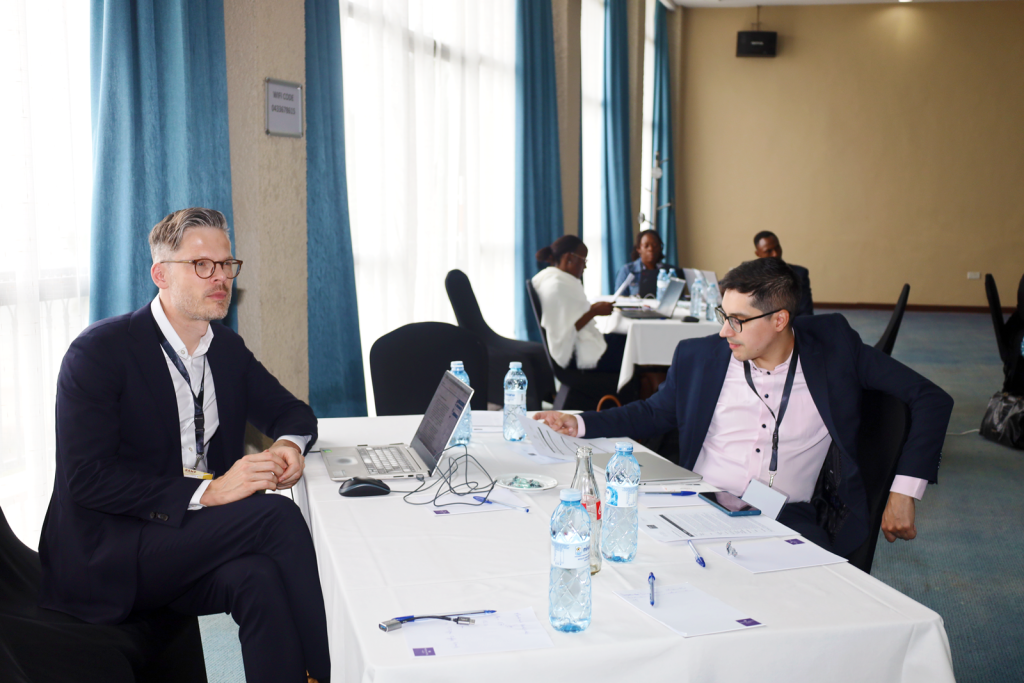
Dr. Harald Heubaum, Deputy Director of the Centre for Sustainable Finance at SOAS University of London, added that the program provides interdisciplinary training for policymakers, focusing on macro-fiscal policies, budgeting, financial sector supervision, trade, and public financial management. “We hope to use this workshop to build a shared understanding of the economics and finance of climate change adaptation,” he said.
Highlighting the Importance of Climate Finance
Mr. Bradley Kratzer, Adaptation Finance Associate at WRI, stressed the importance of integrating climate change considerations into financial decision-making processes. He called for collaboration between policymakers, financial institutions, and development organizations to address climate change challenges. “Integrating climate risk assessments into economic planning and budgeting is crucial for sustainable development,” he emphasized.
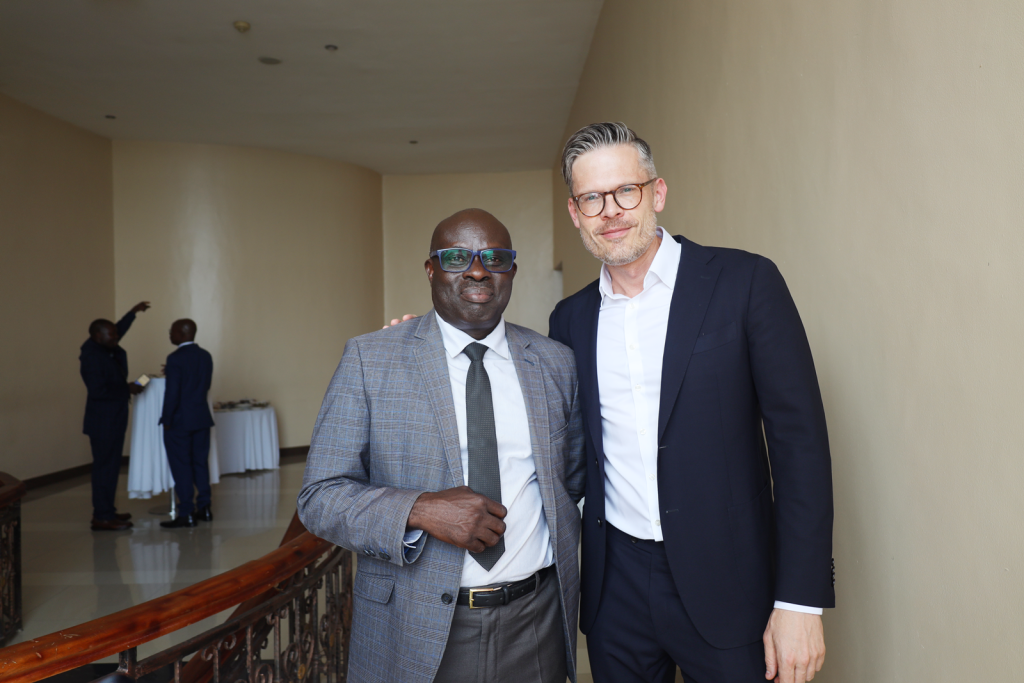
Mr. Sam Mugume from MoFPED’s department of macro-economic policy expressed gratitude for the training, underscoring that climate change is not just an environmental issue but an economic one that requires proper management. He advocated for proactive measures such as investing in resilient infrastructure and promoting green finance initiatives to mitigate economic risks.
Climate Change Effects on Uganda
Uganda faces significant climate change impacts, including increased temperatures, erratic rainfall, and more frequent extreme weather events such as droughts and floods. These changes threaten agriculture, water resources, and overall economic stability. The agricultural sector, which employs a large portion of the population, is particularly vulnerable, with crop yields and livestock production expected to decline. This not only affects food security but also increases poverty levels, Dr. Ibrahim Mike Okumu shared during his presentation.
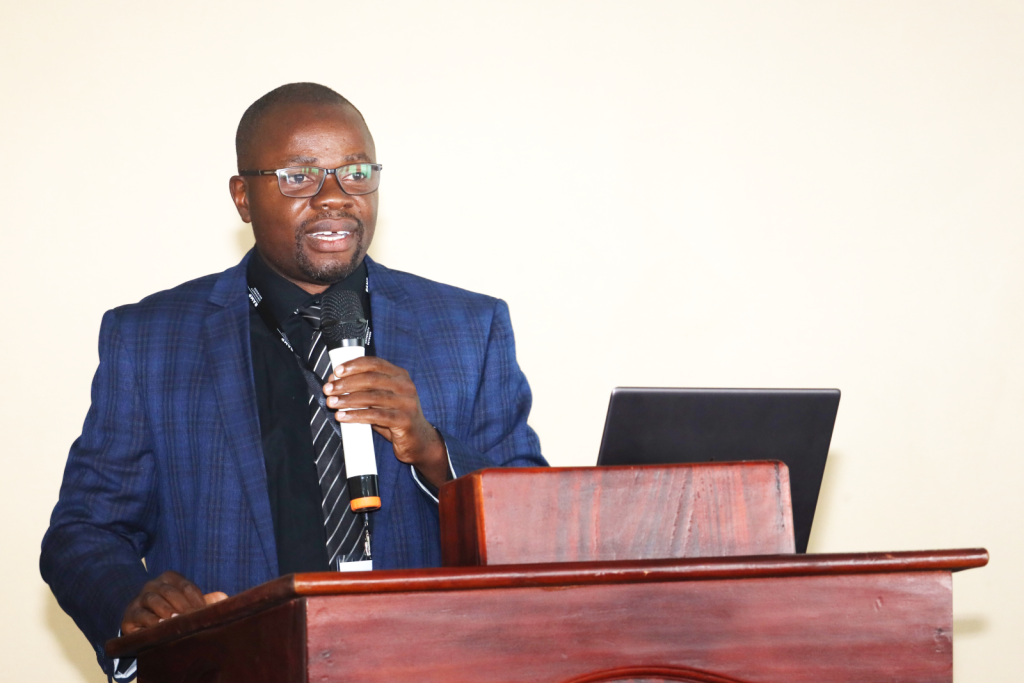
RAMP’s efforts to build resilience and adaptation capacities in Uganda are thus timely and essential, Dr. Mugume added. By empowering government officials with the necessary skills and knowledge, the program aims to ensure that Uganda can effectively manage the economic challenges posed by climate change and safeguard its developmental gains.
The Resilience and Adaptation Mainstreaming Program represents a crucial step forward in the global fight against climate change. By fostering collaboration between leading academic institutions and government bodies, RAMP is setting the stage for a more resilient and sustainable future.
Business & Management
Mak Environmental Economists Explore Uganda’s Albertine Oil Fields: Identifying Research and Collaboration Opportunities
Published
4 days agoon
July 22, 2024By
Jane Anyango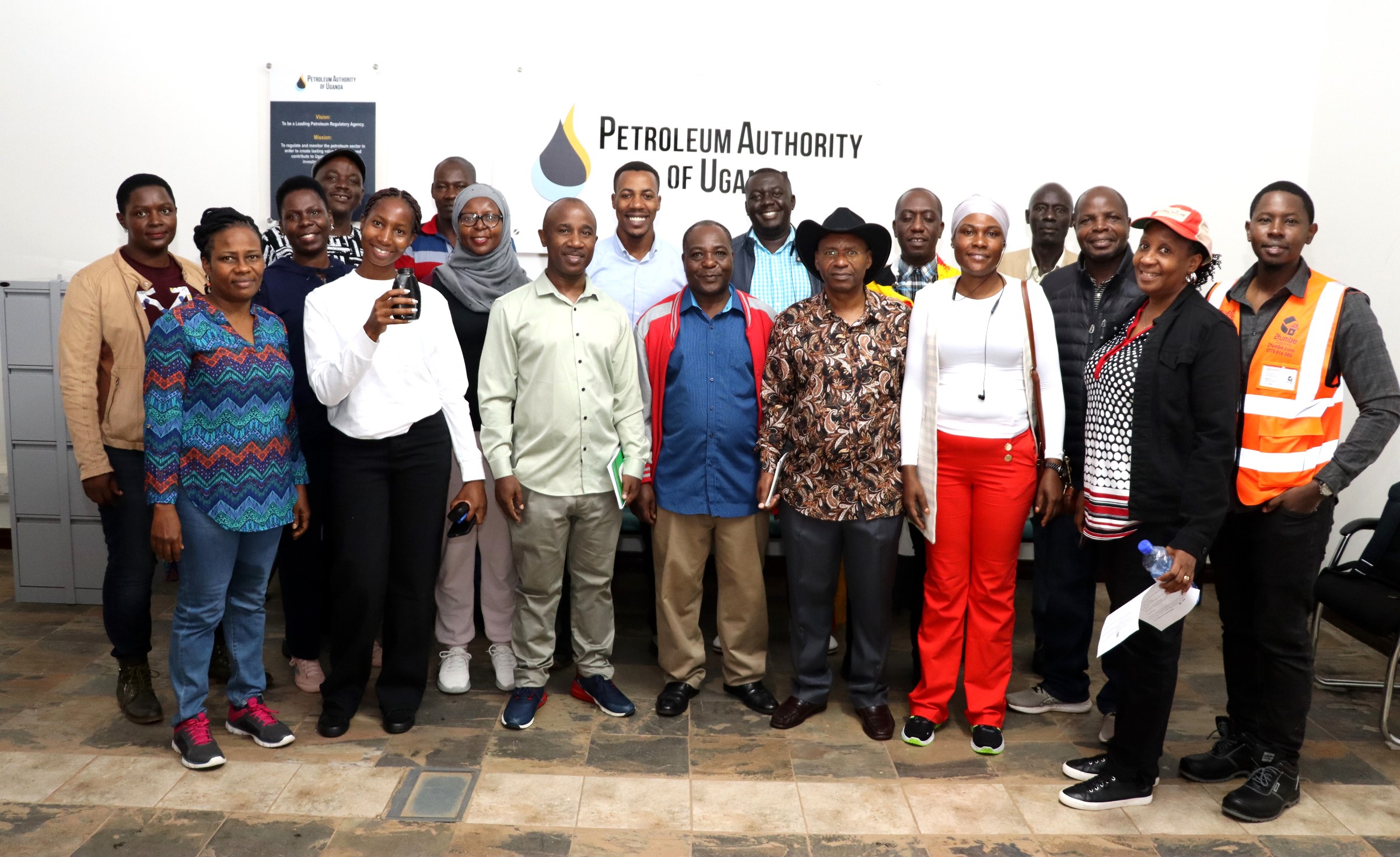
A team of environmental economists from Makerere University recently visited the Albertine oil fields in Uganda to assess ongoing operations in terms of oil and gas exploration and uncover potential research and collaboration opportunities.
The field visit conducted from 17th-20th July 2024 by the EfD –Mak centre in the districts of Hoima, Buliisa and Kikuube aimed to bridge the gap between academic research and practical applications, focusing on the interaction between oil extraction activities and local communities, environmental management and sustainable development.
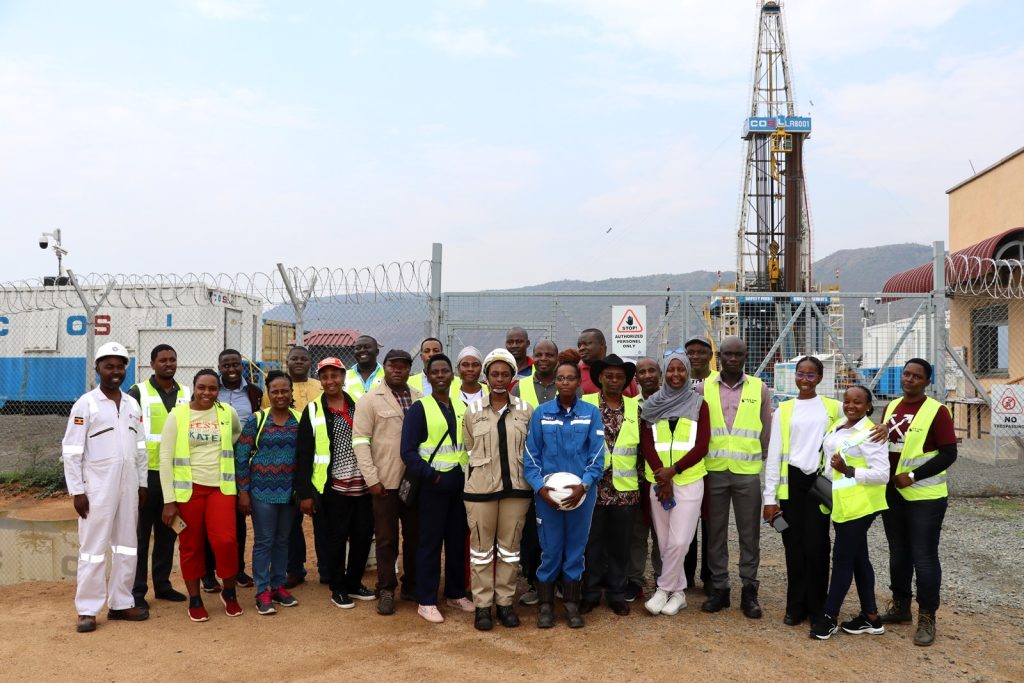
The centre has established two layers of policy engagement by registering key policy actors both at national and subnational levels. This year’s centre theme is “Energy Efficiency”. The theme was selected following the need for transformation from biomass dependence to cleaner energy sources at household level, but also the need for cleaner energies in manufacturing, transport among others.
The reliance on biomass is a key global challenge towards environmental protection and reversing climate change effects. In Uganda, over 85% and 13% of the population use firewood and charcoal for cooking respectively.
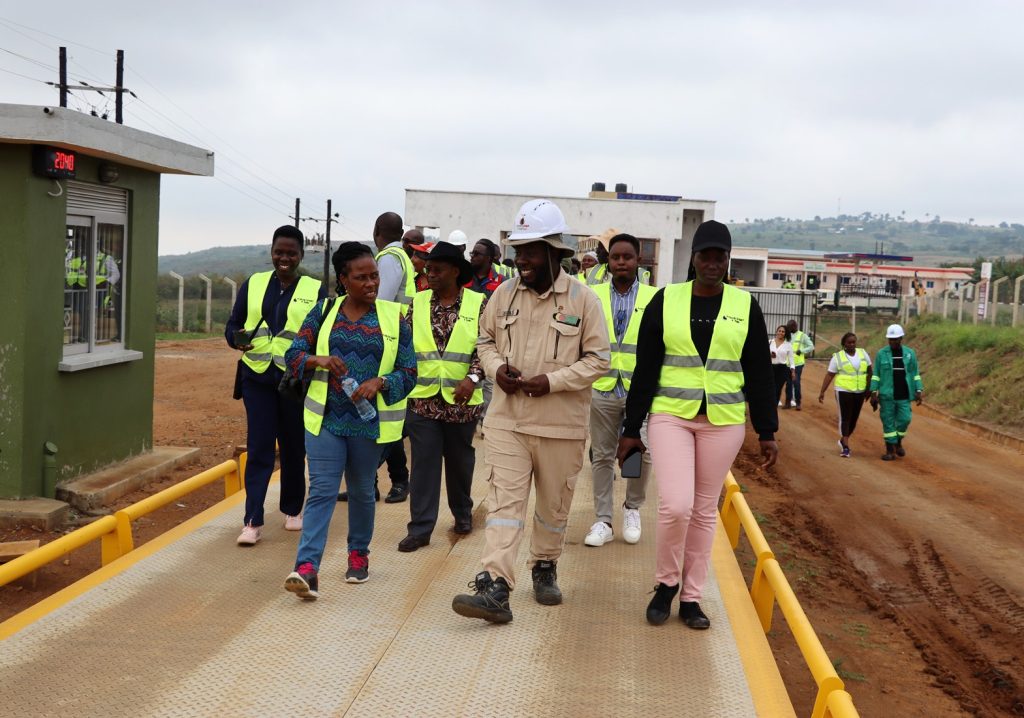
Established in 2018 and inaugurated at Makerere University in 2019, the EfD Mak centre strives to foster transdisciplinary research, knowledge transfer, and research-to-policy engagement and community interventions in environmental economics.
In view of the above, the centre organized a three day outreach in three districts and held her inaugural Annual General Meeting and launched a policy dialogue on 18th July 2024 at Glory Summit Hotel in Hoima which attracted over 60 people including district leadership, community based organisations, civil servants, private sector and academia.
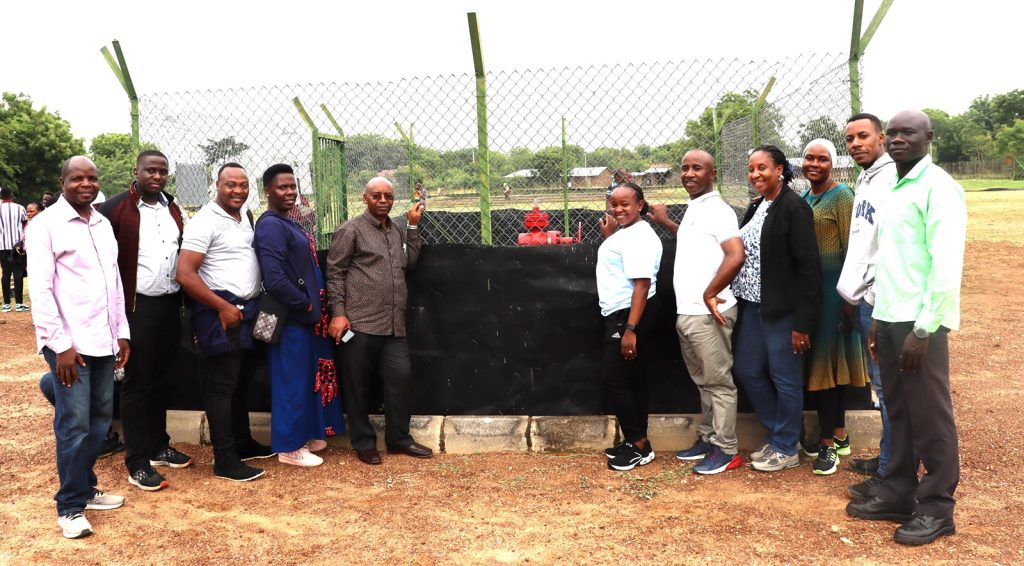
For the last two days, the researchers led by the Centre Deputy Director Prof Johnny Mugisha visited the Uganda Petroleum Authority in Hoima, visited oil wells including the Central Processing Facility, King fisher, Tilenga Industrial Park, Kasemene site 1, the Luwero Industries Ltd Oil waste treatment plant and the Kabalega International Airport.
“The objective of visiting the oil and gas sites and companies is to enable our research fellows familiarize with activities and operations in Uganda’s oil and gas with a view of fostering researchable projects, constructive dialogue and policy developments on critical issues related to sustainable development, environmental stewardship, environmental risk management and responsible oil and gas operations in the sensitive ecosystem of Lake Albert and Murchison Falls National park”, team leader, Prof. Mugisha explained.
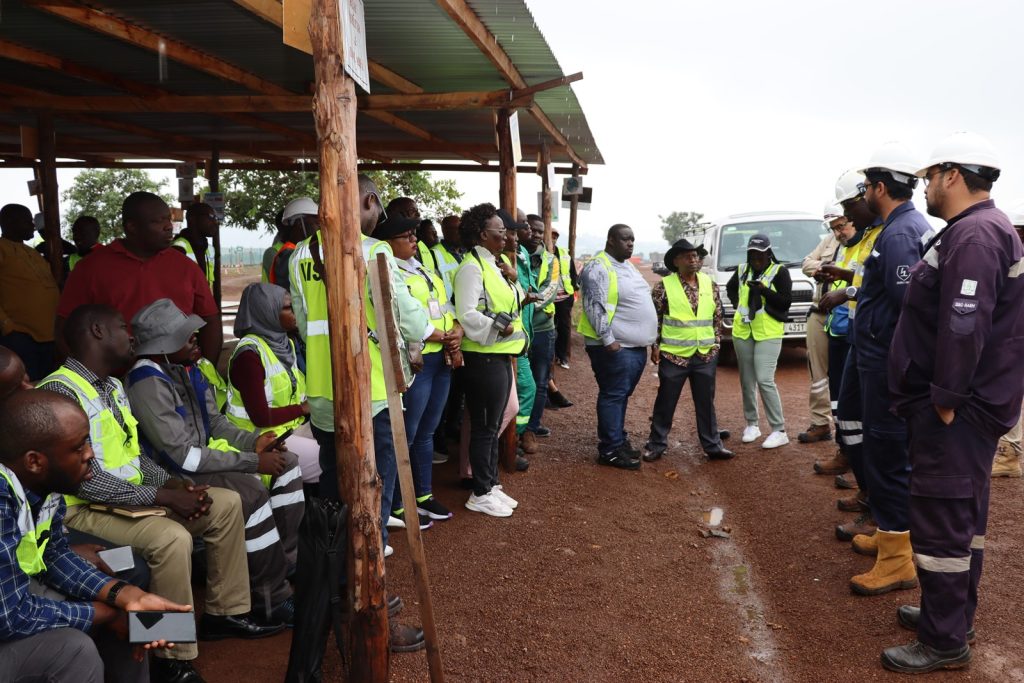
The centre’s areas of interest included the environmental impact assessment and monitoring, petroleum waste management practices, integration of biodiversity conservation, community engagement and socio economic impacts.
Other areas of interest were regulatory framework and compliance, water resource management and protection, climate change resilience and adaptation strategies, corporate social responsibility initiatives, long term environmental management plans and how Makerere University can collaborate effectively with the Petroleum Authority of Uganda, CNOOC, UNOC and Total Uganda to enhance research and knowledge sharing on sustainable practices, environmental conservation and petroleum management.
EfD Researchers Gain Critical Insights from Oil and Gas Community Visits
Researchers concluded a three-day visit to oil and gas communities, gaining firsthand insights into the sector’s impact and future prospects. The visit emphasized the need for informed research and sustainable planning to maximize the benefits of Uganda’s oil and gas resources and prepare for future challenges.
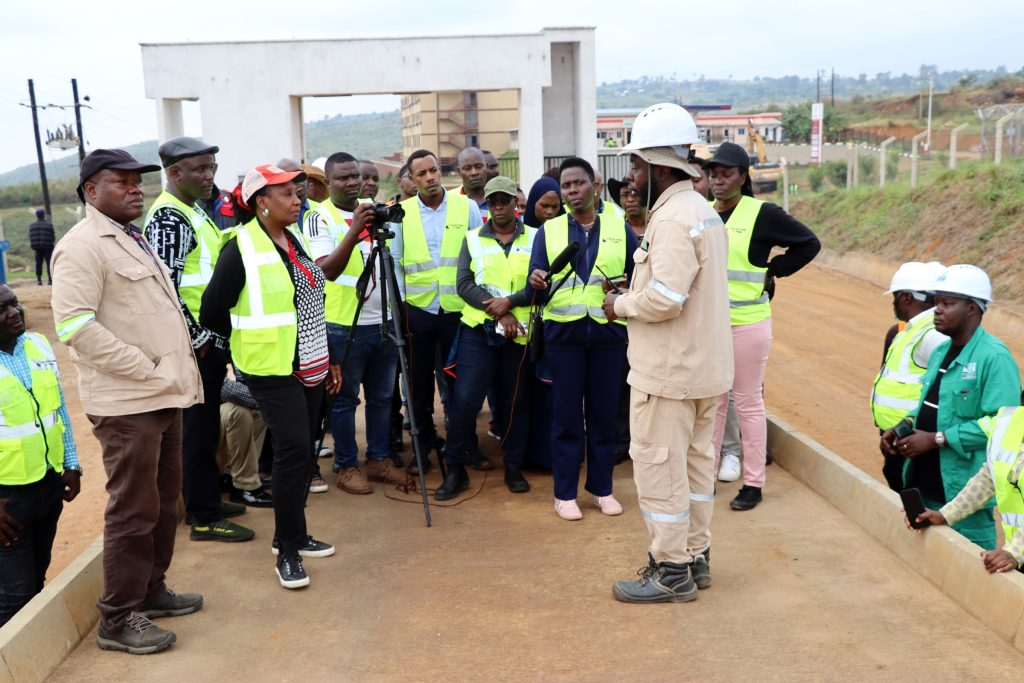
Firsthand Observations Critical: Dr. Madina Mwagale Guloba, Senior Research Fellow at EfD Mak, emphasized the value of seeing conditions on the ground to counteract misinformation about oil and gas exploration. “Seeing is believing, and seeing also learning from a point of view is very critical,” she stated. Dr. Guloba dispelled what she termed “corridor talk,” noting that community members affected by oil projects appeared happier and saw more opportunities. She stressed the importance of sustainable planning, saying, “In the next 30 years, people would have gotten even more opportunities.”
Cross-Cutting Research Needed: Prof. Johnny Mugisha, Deputy Centre Director, emphasized the necessity of interdisciplinary research, noting the interdependence of the petroleum sector and farming communities. He underscored that Makerere University needs to boost its research and outreach efforts to aid policy development. “From interactions in Hoima, Bulisa, and with people in the oil sector, the lessons learned indicate that Makerere University has much more to contribute, especially in research, outreach, and grassroots stakeholder engagement. We often view the petroleum and gas sector as separate from farming communities, but our experiences show a significant relationship and interaction between them. Therefore, research should not be limited to one entity but should be cross-cutting,” stated Mugisha.
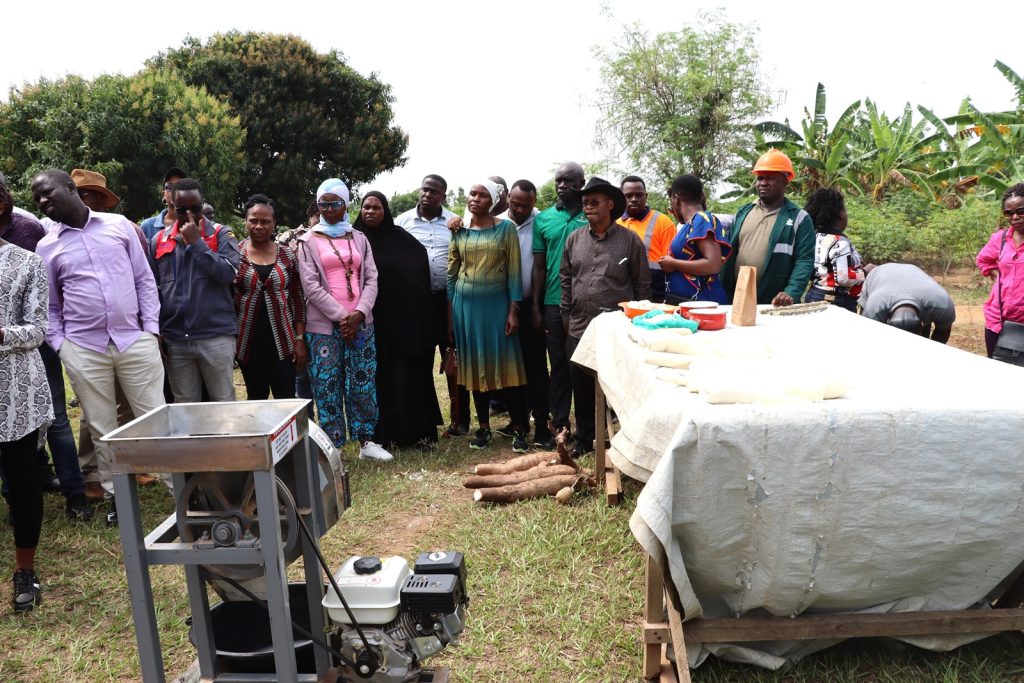
On-the-Ground Engagement: Dr. Alex Tatwangire, Research Fellow and Lecturer, emphasized the value of direct stakeholder interaction, noting effective environmental mitigation plans and agricultural integration in restoring livelihoods for project-affected persons. He called for continued research to address policy gaps. The visit highlighted the importance of informed research and sustainable planning in maximizing the benefits of Uganda’s oil and gas resources while preparing for future opportunities.
Reflecting on his experience, Dr. Tatwangire remarked, “This engagement with stakeholders on the policy of energy utilization in Hoima has been incredibly useful. We’ve had the chance to observe the oil extraction process firsthand. Reading about it and hearing about it is one thing, but going on the ground and interacting with everyone involved provides a much richer understanding.”
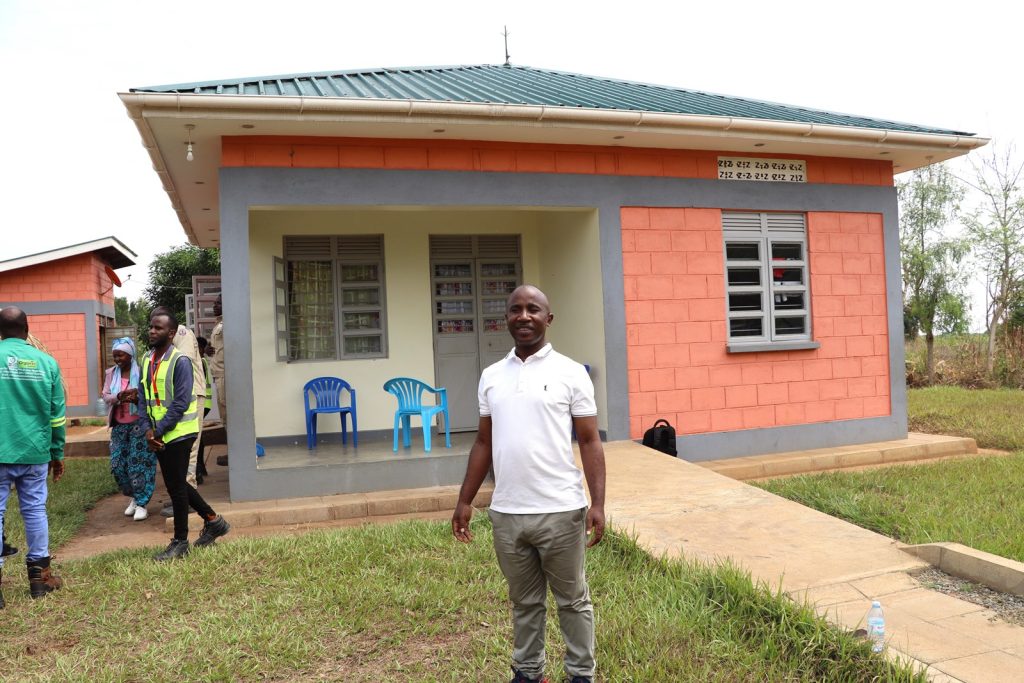
He continued, “Seeing the wells, well pads, regulations, infrastructure, and the oil pipeline being laid, and being assured that oil will flow within a year, has been enlightening. We’ve learned a lot about the connections between the environment and how plans are in place to mitigate environmental damage. We also saw how agriculture is integrated into livelihood restoration for project-affected persons, with strategies to strengthen these livelihoods through training, seeds, and advanced technologies.”
Dr. Tatwangire concluded, “I return with a great appreciation for the progress being made. As researchers, our role is to identify gaps, explore research questions, and provide the evidence policymakers need to improve policy planning. I am grateful to EfD, our financiers, and Makerere University for these opportunities, and I hope for more such engagements to enhance our relevance in policy debates and development.”
Jane Anyango is the Communication Officer EfD Uganda
More photos from the Field Visit
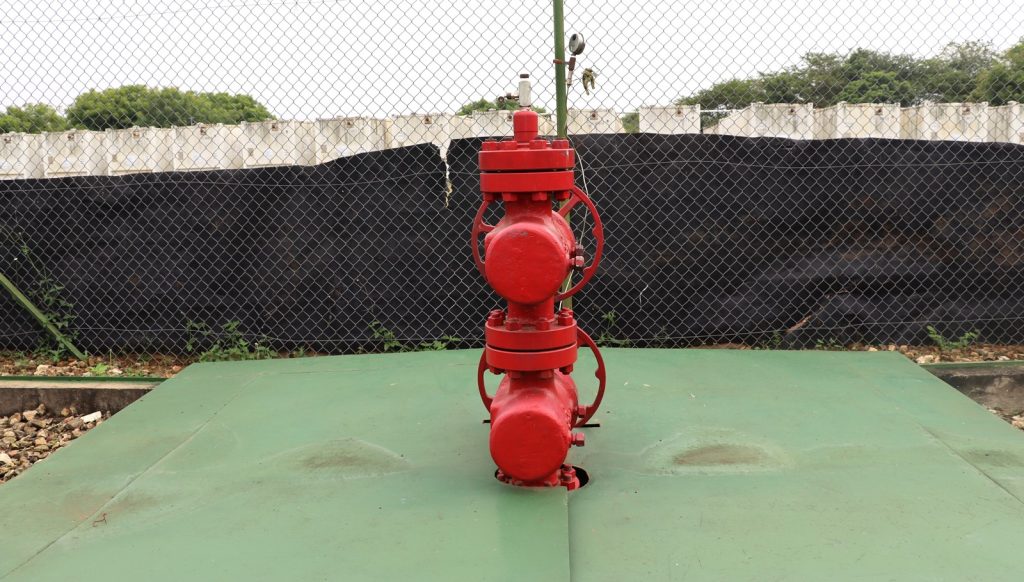
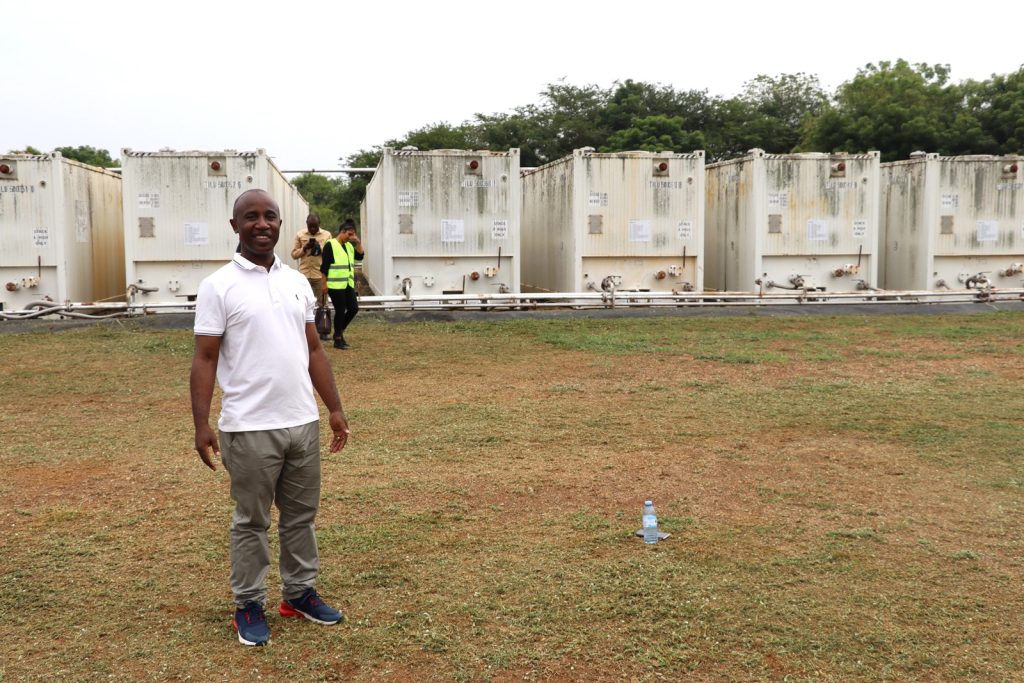
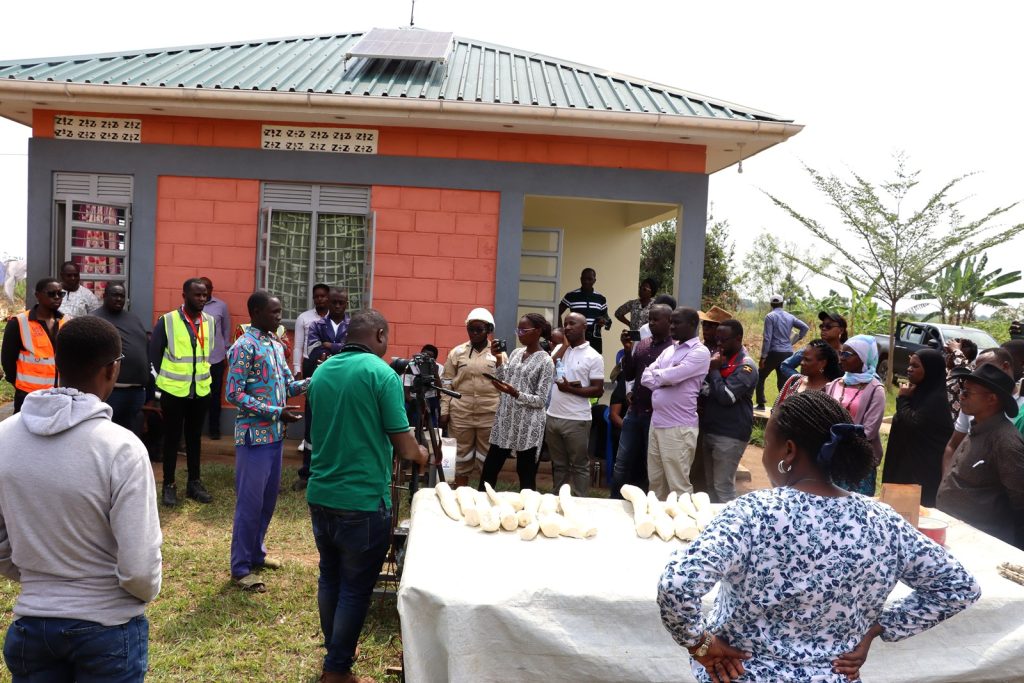
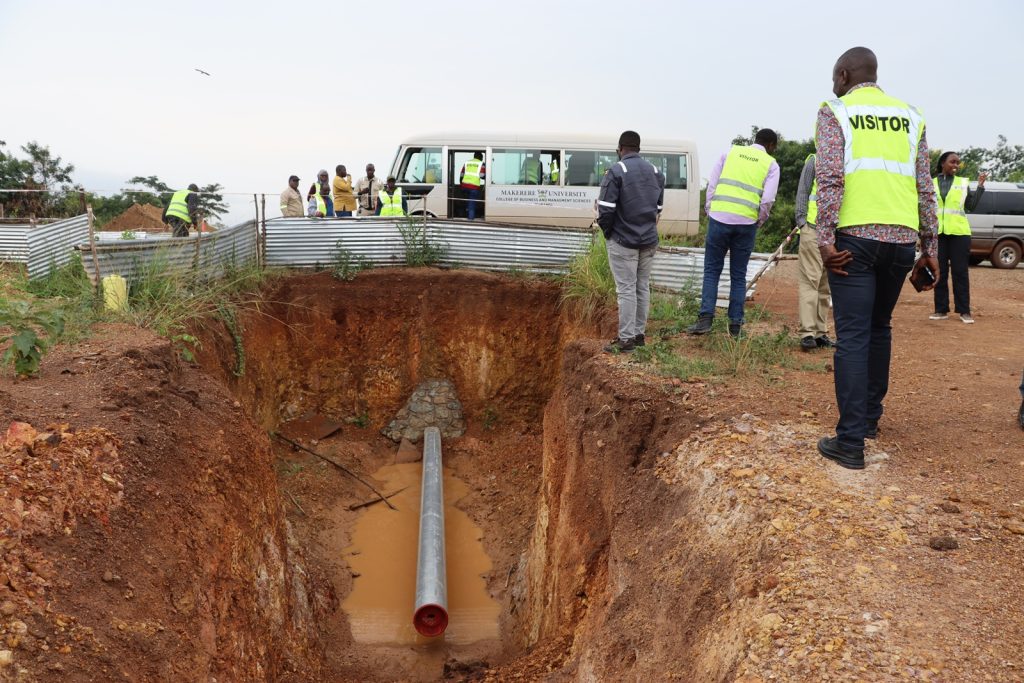
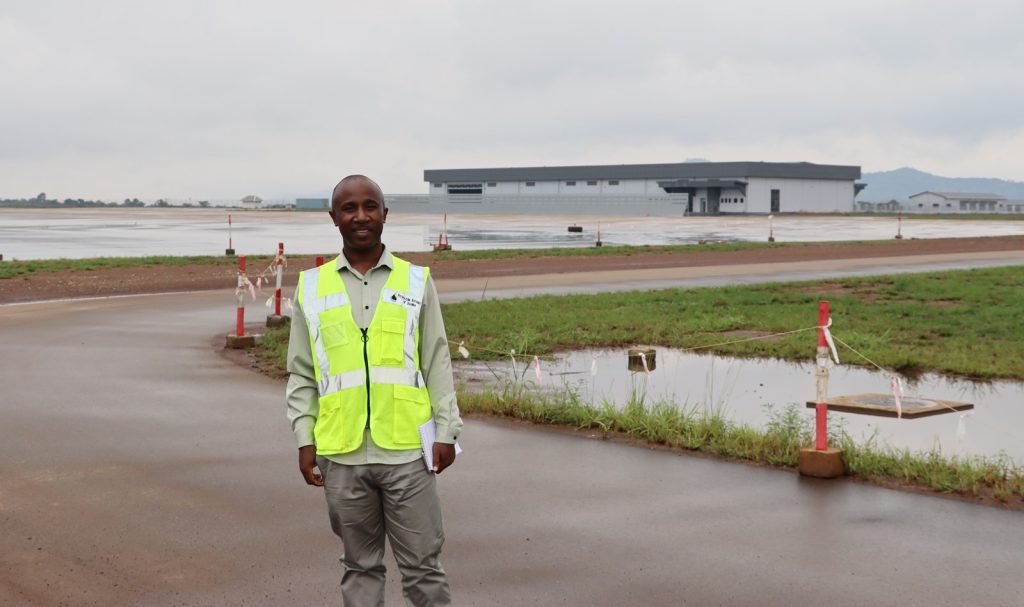
Business & Management
EfD Hosts Policy Dialogue on Energy Efficiency and Reduced Emissions: Hoima Residents Call for Expanded Access to Clean Energy
Published
4 days agoon
July 22, 2024By
Jane Anyango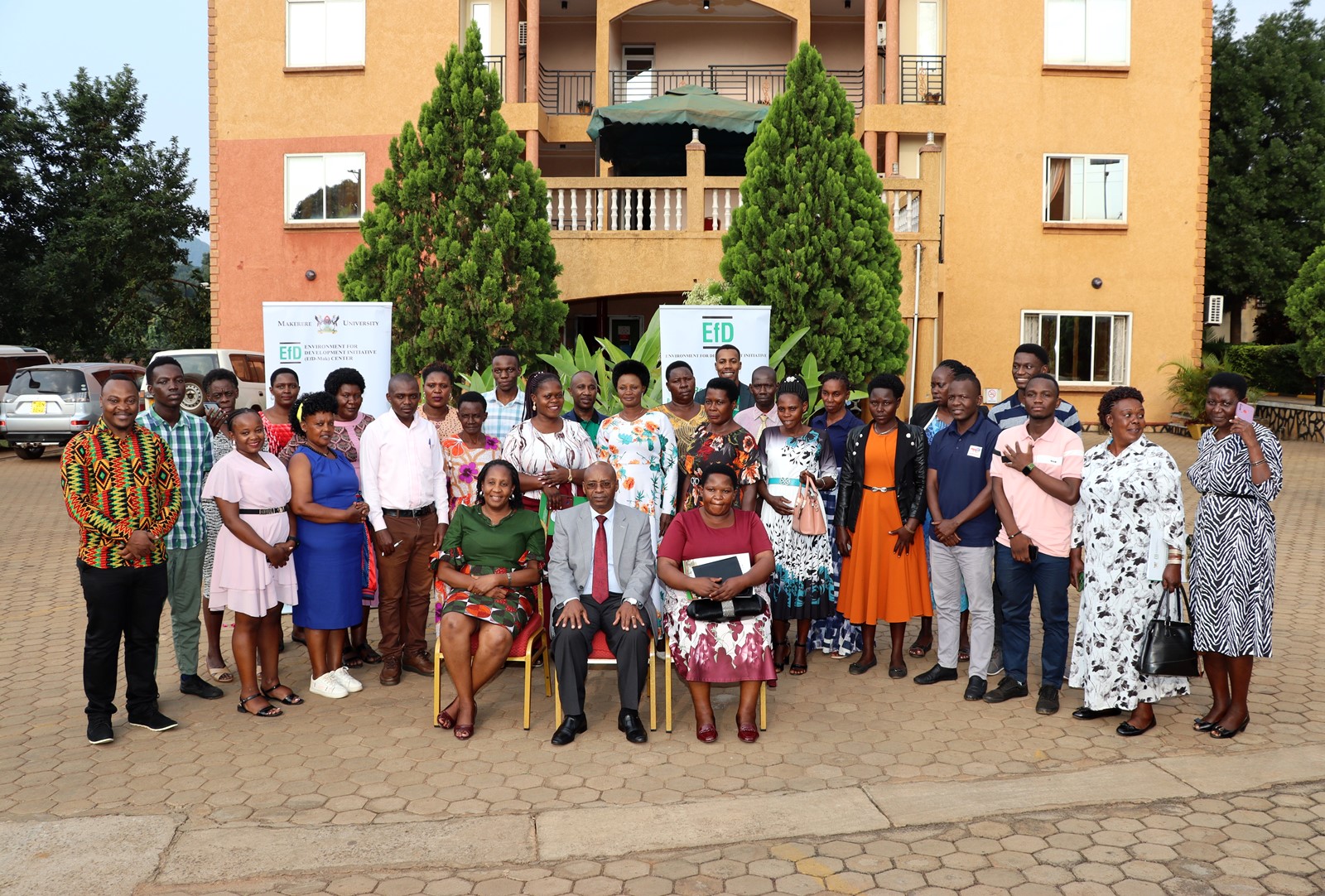
Hoima, July 18, 2024 – Stakeholders from Hoima’s local government, private sector, and civil society organizations have urged the government to expand access to clean energy sources like electricity and LPGs to facilitate the country’s transition from biomass and achieve its green growth strategy. Despite Uganda’s capacity to generate and export electricity to neighboring countries, access and affordability remain significant challenges for rural areas and a large portion of the population.
During a policy dialogue hosted by the EfD-Mak Center in Hoima, themed “Energy Efficiency and Reduced Emissions in Uganda: Facts and Prospects,” stakeholders highlighted the necessity of addressing these challenges. The event, part of the EfD Annual Meeting, gathered district local government officials, both technical and political, as well as academia, youth, and members of the private and civil society organizations.
In his opening remarks, Prof. Johnny Mugisha, Deputy Director of the EfD-Mak Center, emphasized the importance of holding the dialogue in Hoima due to the region’s developments in energy. “The energy we are talking about includes firewood, charcoal, petroleum, electricity, and many others. We deliberately chose Hoima because of the energy developments here, and we are looking forward to petroleum-sourced energy,” Mugisha explained.
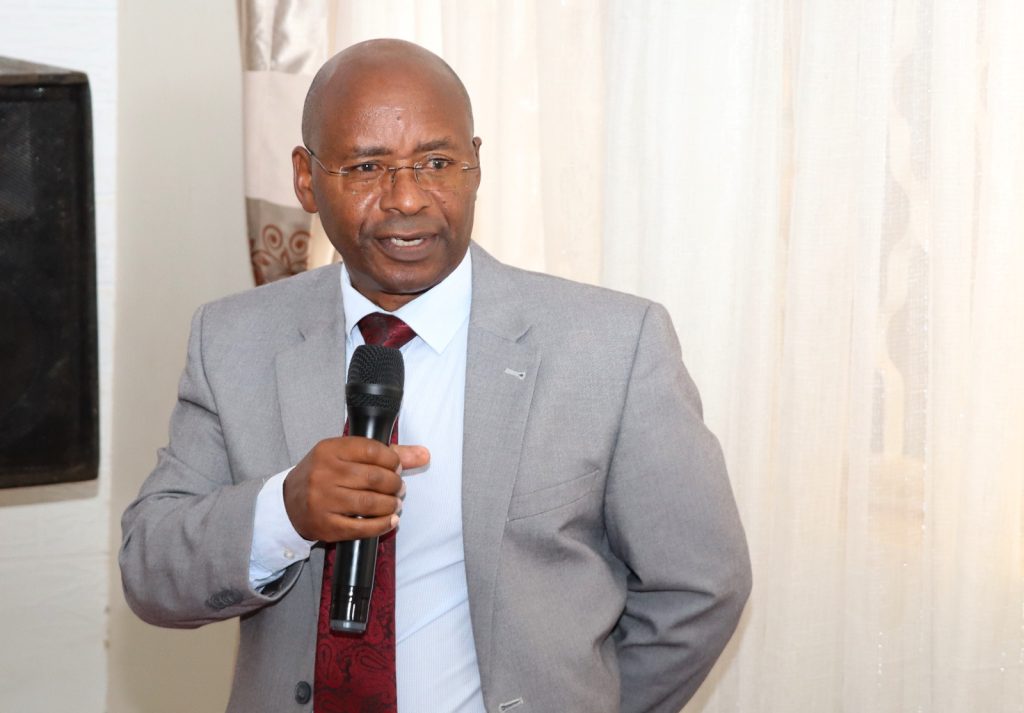
He noted the slow and long-term transition from biomass to cleaner energy sources, underscoring the need for discussions around biomass and clean energy. “Energy efficiency means how much you get from the energy you use to achieve a result, for example, how much electricity you use when cooking matooke,” he said. “This dialogue is a roundtable discussion for us all to give our input on what is causing what and how best to sustainably use the environment as we transition to clean energy sources.”
Prof. Mugisha stressed the university’s commitment to promoting such dialogues across the country. “Our intention is to get the root causes right from the grassroots communities so that together we can propose solutions to inform policymakers for decision-making and implementation,” he concluded.
Uganda’s Path to Energy Efficiency and Reduced Emissions: Key Insights from Dr. John Sseruyange
In his presentation Dr. John Sseruyange highlighted the critical role of energy efficiency and emission reduction in transforming Uganda from a peasant society to a modern, prosperous nation, as envisioned under Vision 2040.
“Energy acts as a catalyst that drives all other sectors,” stated Dr. Sseruyange. With agriculture contributing to 71.7% of employment, the mechanization of Uganda’s economy and the expanding transport sector are significantly increasing fossil fuel and biomass usage, leading to heightened carbon emissions and deforestation.
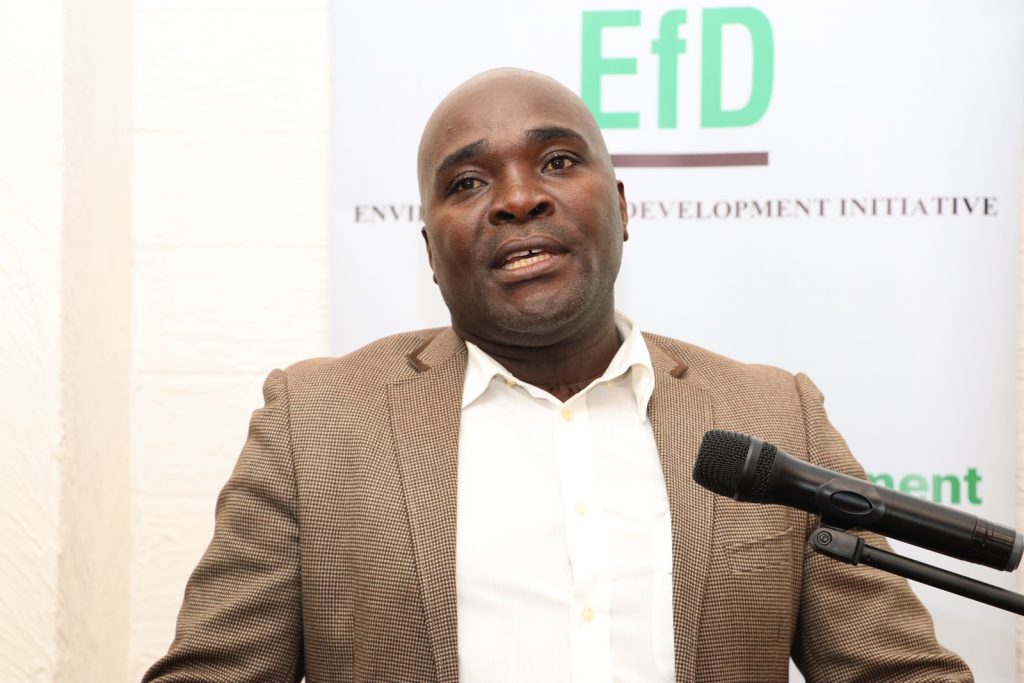
Dr. Sseruyange warned of the dangers of biomass reliance, noting that Uganda’s forest cover has decreased from 24% in 1990 to 9% in 2015 due to tree cutting for firewood and charcoal. “The rapid rate of forest depletion is alarming,” he said, emphasizing the health and environmental impacts of biomass fuels, including air pollution and associated diseases.
The presentation highlighted that women and children, especially girls, are disproportionately affected by biomass fuel collection, which hampers productive activities and schooling. “The burden of wood fuel collection falls heavily on women and children,” noted Dr. Sseruyange.
Dr. Sseruyange identified several barriers to energy transition in Uganda, including weak implementation capacity, cultural preferences, and limited accessibility to affordable and reliable clean energy. He pointed out that only 42% of the population had access to hydropower by 2021, and many clean energy systems, such as LPG, remain unaffordable for small businesses.
Addressing governance, Dr. Sseruyange explained the complex interplay of institutions involved in promoting efficient energy systems, ranging from the Ministry of Energy and Mineral Development to international organizations like the World Bank. He stressed the importance of household and industrial capacity in adopting new technologies.
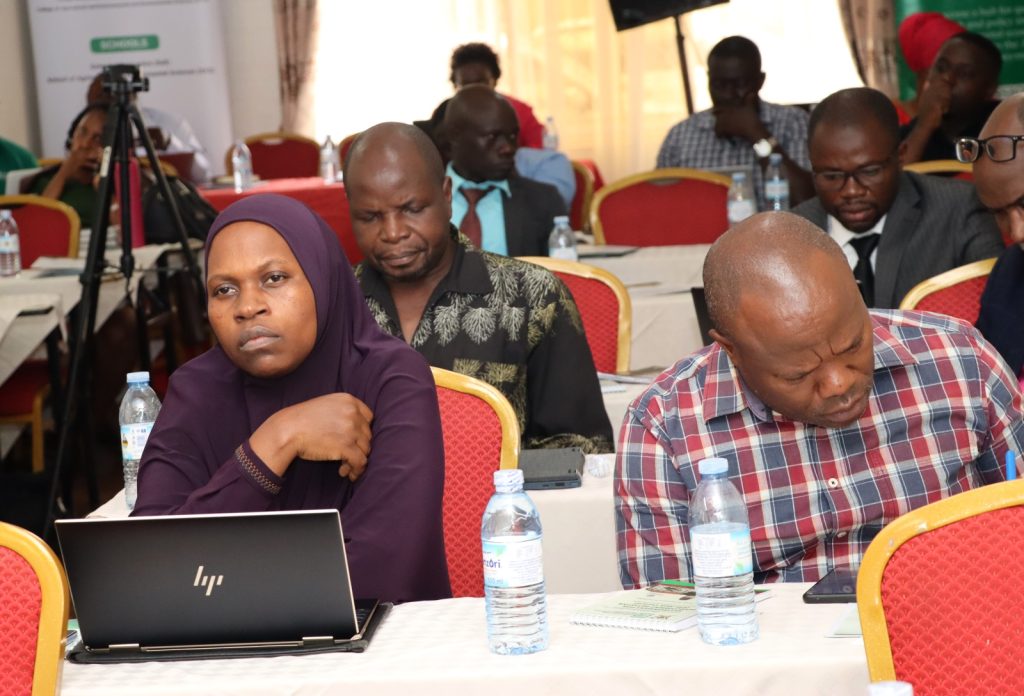
Despite these challenges, Dr. Sseruyange outlined several promising initiatives aimed at enhancing energy efficiency and reducing emissions. Vision 2040 focuses on upgrading industrial technologies to less energy-consuming alternatives. The National Development Plans aim to increase clean energy accessibility and promote efficient cooking technologies. The Uganda Green Growth Development Strategy emphasizes low carbon development and solar energy installation.
Additionally, Uganda’s hydropower capacity has increased from 1278.6 MW in 2019/20 to 1370.8 MW in 2021/22, demonstrating improved energy generation capacity. Solar energy expansion efforts have resulted in off-grid solar installations reaching 30,000 households, with several solar PV plants contributing over 65 MW. The Clean Cooking Supply Chain Expansion Project has sold 72,535 energy-saving stoves by 2020. Furthermore, the government is aiming to distribute 1 million subsidized LPG cylinders to promote cleaner cooking technologies.
Dr. Sseruyange also highlighted the establishment of Kiira Motors to produce electric vehicles and the development of highways and non-motorized transport systems to reduce urban traffic congestion and emissions. “The government is taking significant steps towards a sustainable energy future,” he concluded.
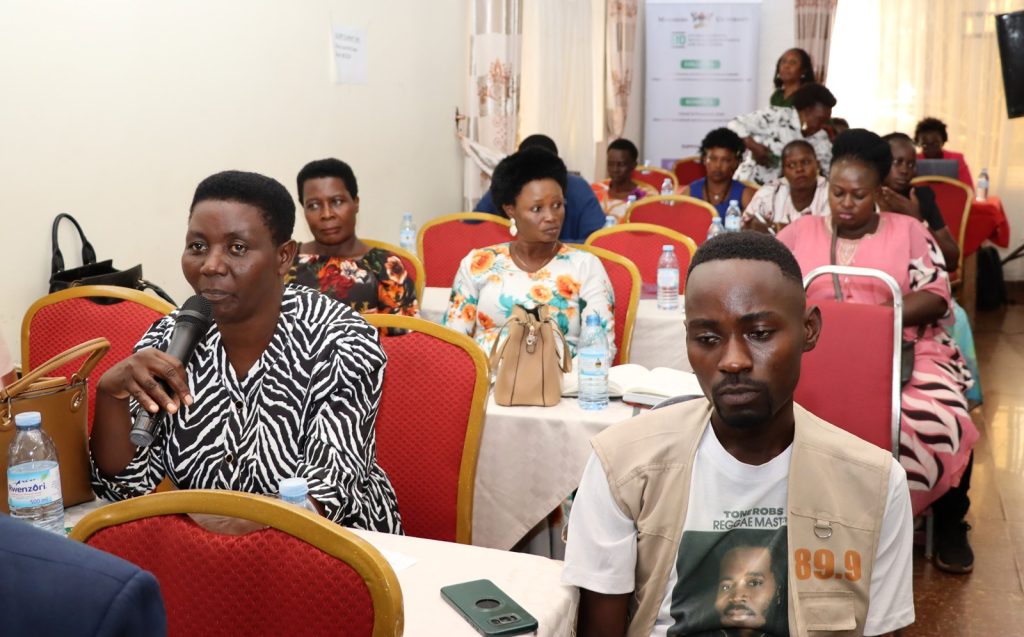
In closing, Dr. Sseruyange called for policy and regulatory reforms, public awareness campaigns, and rigorous assessments to promote energy transitions. “How can we, as a nation, collaboratively promote energy transitions?” he posed to the audience, urging collective action from government, NGOs, and the general public.
Participants React
During the plenary discussions, several interventions were proposed to enhance the transition to green technologies. Highlighting the negative environmental impacts of high school dropout rates.
Participants noted that many youths turn to activities like bricklaying, charcoal burning, and sand mining for survival, which harms the environment. They called for public education and awareness programs to address fears and cultural biases against new energy technologies. “Education on the benefits of using these technologies is crucial,” said Harriet the district natural resources officer.
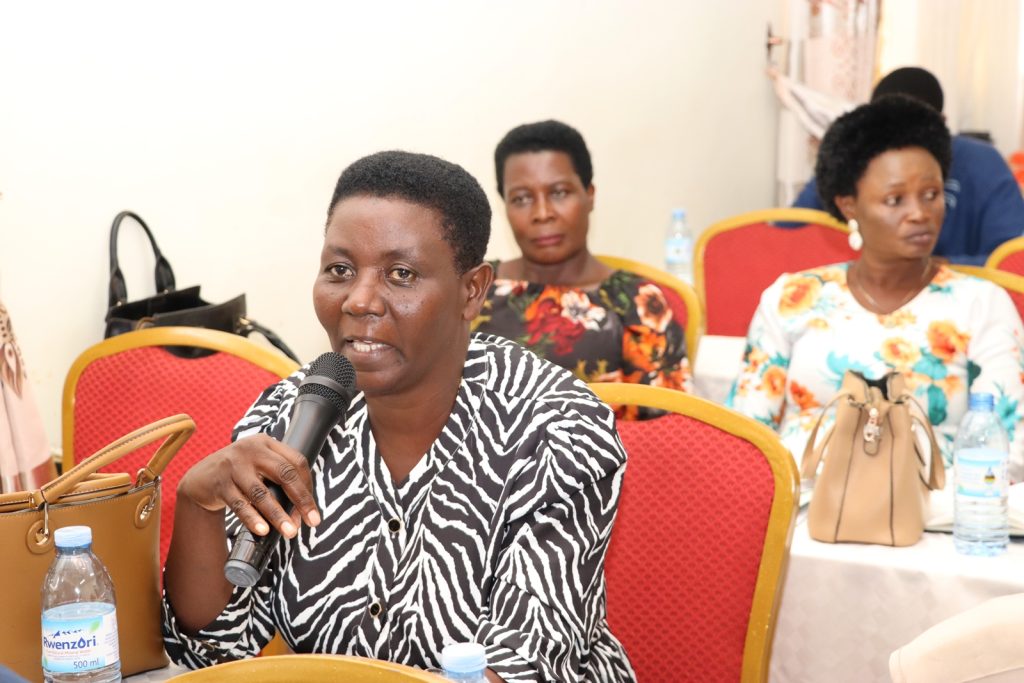
Affordability of new energy sources was another major concern, with high initial costs and refilling expenses for LPGs making them inaccessible for many rural poor.
Participants also highlighted the problem of low-quality counterfeits sabotaging payment schemes for acquiring new technologies, calling for regulation to address quality standards.
Cultural perceptions that clean cooking energies are for the rich and lazy further hinder the transition, underscoring the need for continuous public sensitization, which they stressed should be physical.
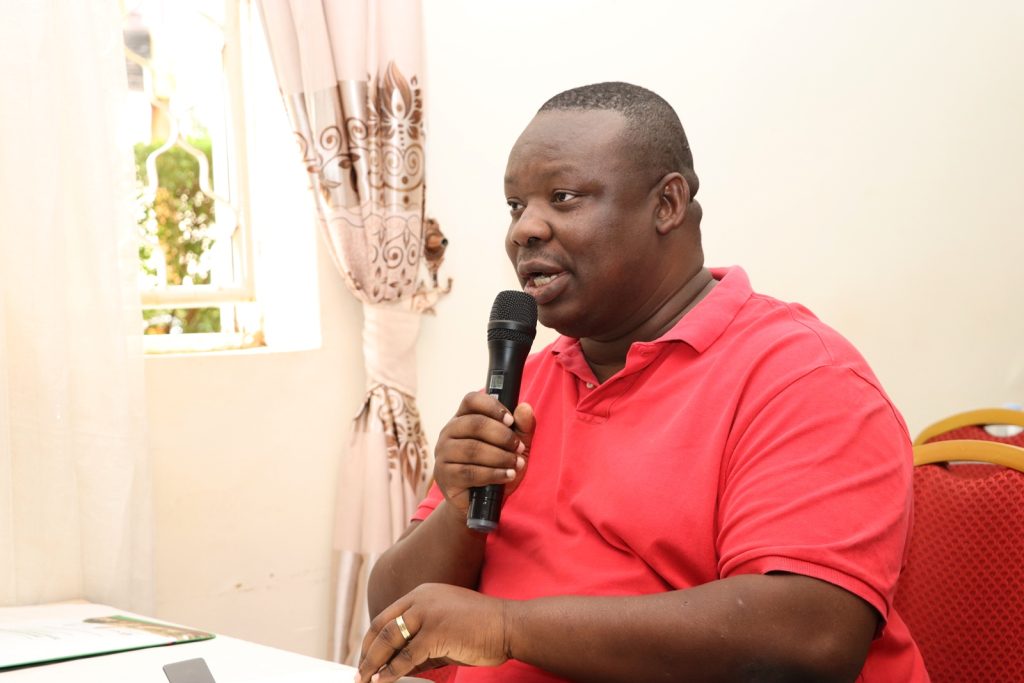
Limited budgets for local governments and weak enforcement mechanisms were also cited as barriers to implementing clean energy programs. Participants proposed subsidies for manufacturers and consumers of clean energy sources, expanding access to electricity and LPGs in rural areas, and ensuring widespread availability and awareness of green technologies.
Hoima District Leadership Decries Effects of Indoor Pollution
The Vice Chairperson of Hoima District, Hellen Namulumba, raised concerns about the severe effects of indoor pollution on the community’s health.
Closing the policy dialogue, Namulumba appreciated the organizers for addressing these critical issues, noting that many lives have been lost due to ignorance about the dangers of indoor pollution.
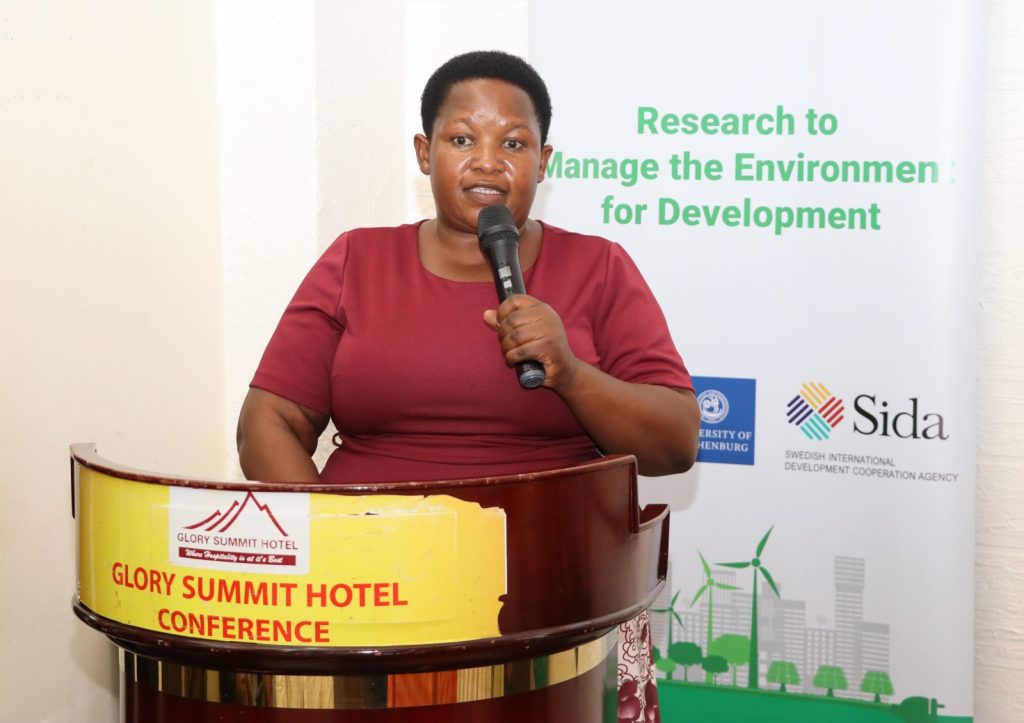
“There is no single woman in the village who would wish to continue cooking on firewood but they are incapacitated. They can adopt to other energy sources like electric and gas cockers”, she stressed
Namulumba highlighted the increasing cases of cancer, associating the disease to the use of biomass. “It is my prayer that we conduct many of these engagements at the grassroots level, bringing on board sub-county political leaders,” she said.
She called for government intervention to reduce indoor pollution by extending power coverage to rural areas beyond 50%, reducing power unit costs for domestic users, and ensuring consistent power supply. “If government can intervene, indoor pollution can reduce. If government can extend power coverage to rural areas beyond 50% and reduce the cost of power units for domestic users and ensure there is consistency in power supply, I think our people can enjoy this country,” Namulumba stated.
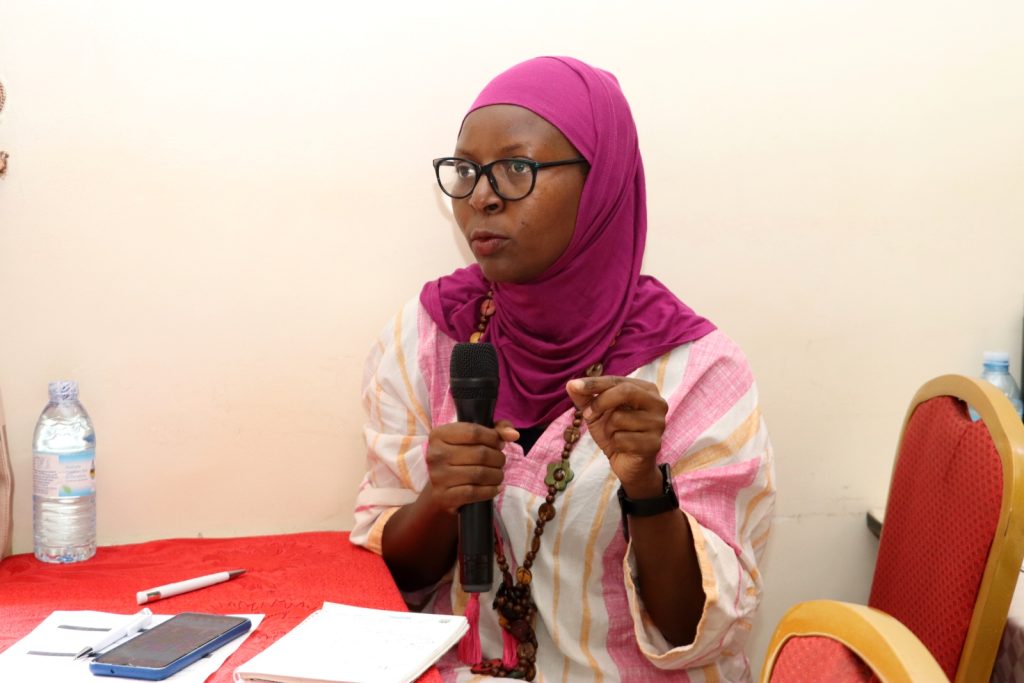
She also emphasized the need to support small-scale innovators, such as those manufacturing briquettes and improved cooking stoves, to reduce indoor pollution. Additionally, she called for strengthened policies for emission control systems in automobiles to reduce cancer and other disease rates.
“If at all government can boost small-scale innovators like assisting briquette manufacturers in marketing their products through sensitization, boost those making improved cooking stoves, we can reduce indoor pollution,” she said. “And if government can strengthen policies for emission control systems in automobiles that can greatly make an impact in reducing the rate of people dying of cancers and other diseases.” she proposed.
Namulumba thanked the participants for their attendance and pledged the district’s commitment to support them in these initiatives, appealing to them to come up with budgets to support those engaged in making alternative energy sources.
Jane Anyango is the Communication Officer EfD Uganda
Trending
-
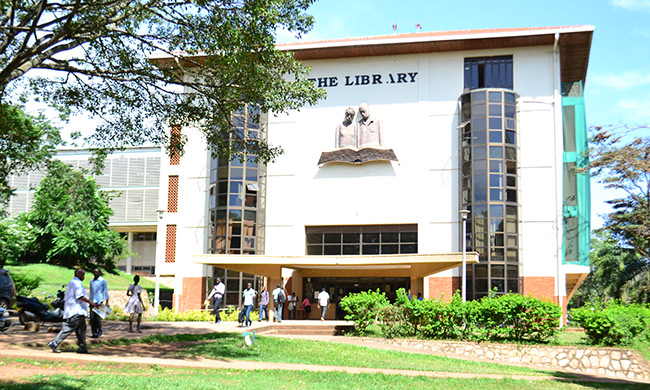
 General1 week ago
General1 week agoDiploma/Degree Holders Admission Lists 2024/25
-
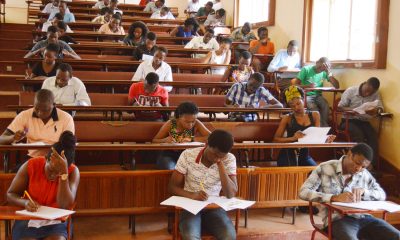
 General1 week ago
General1 week agoAdvert: Mature Age Entry Scheme – Private Sponsorship 2024/2025
-

 General5 days ago
General5 days agoProf. Buyinza Mukadasi Appointed Acting DVC Academic Affairs
-
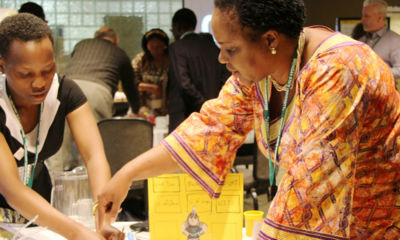
 General1 week ago
General1 week agoAfrican Futures Research Leadership Program: Cohort 5 – Call for Scholars
-
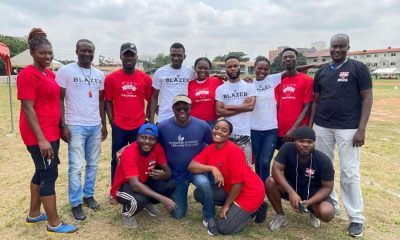
 General1 week ago
General1 week agoNow Open: CADFP Project Requests
